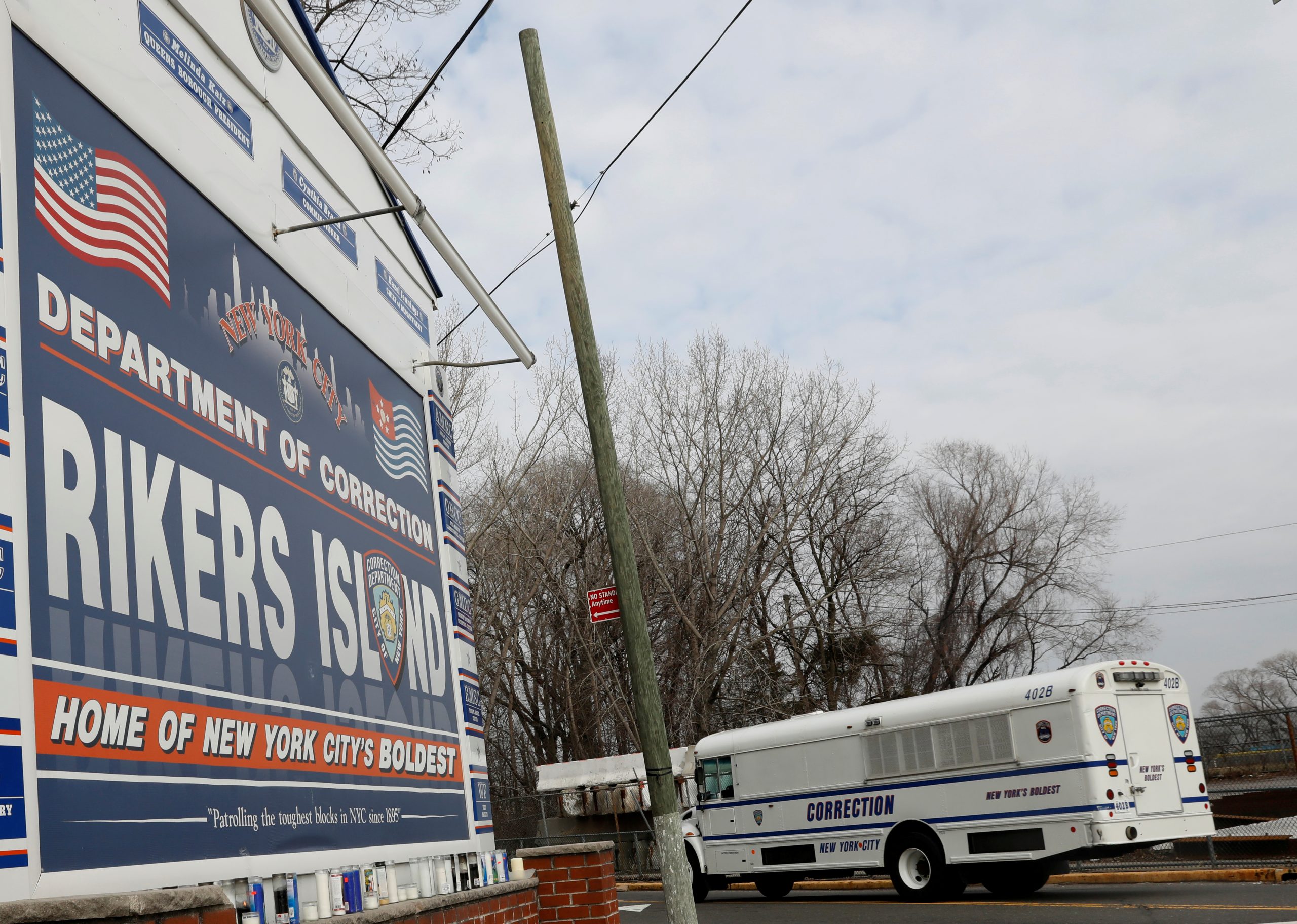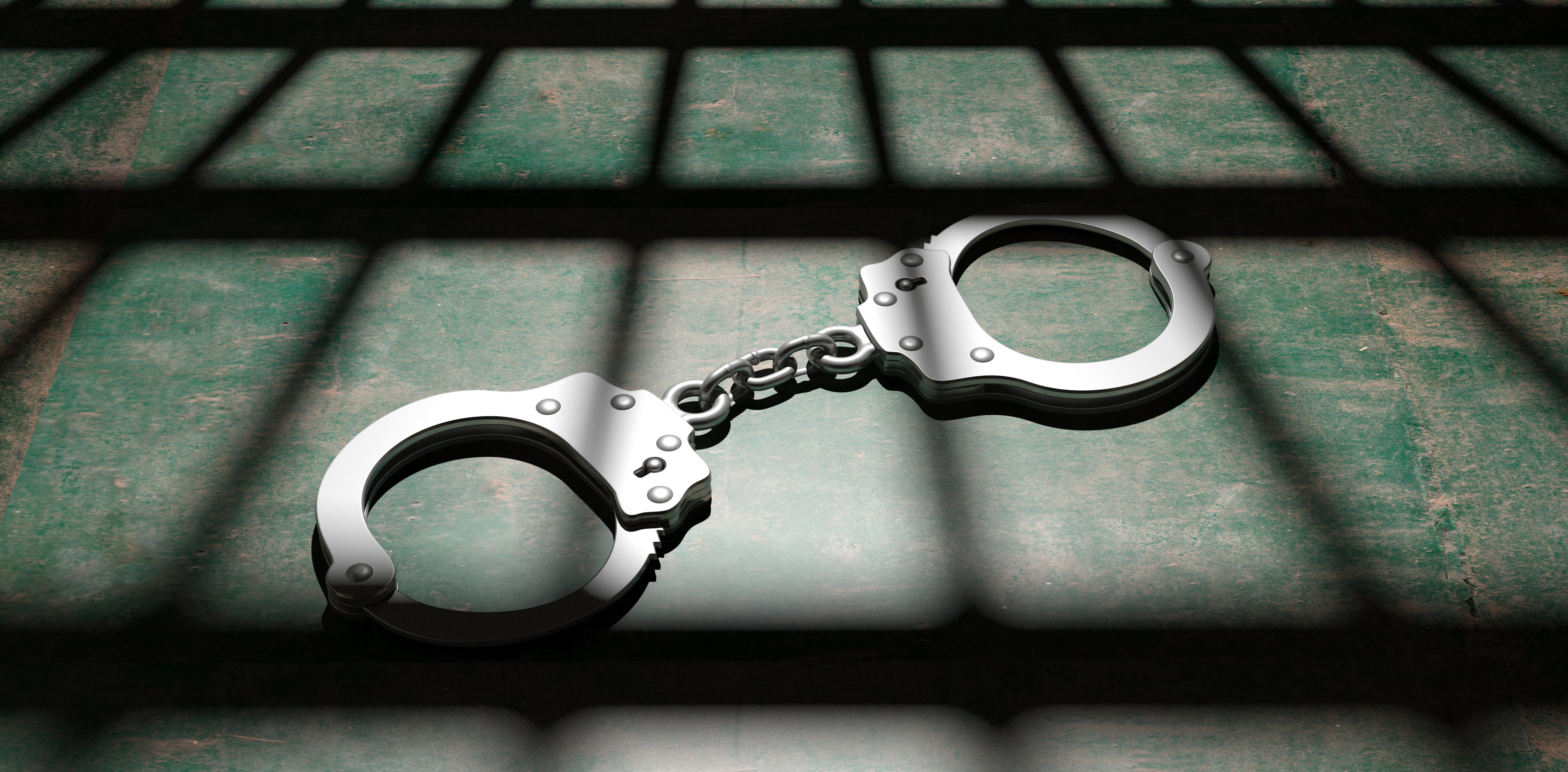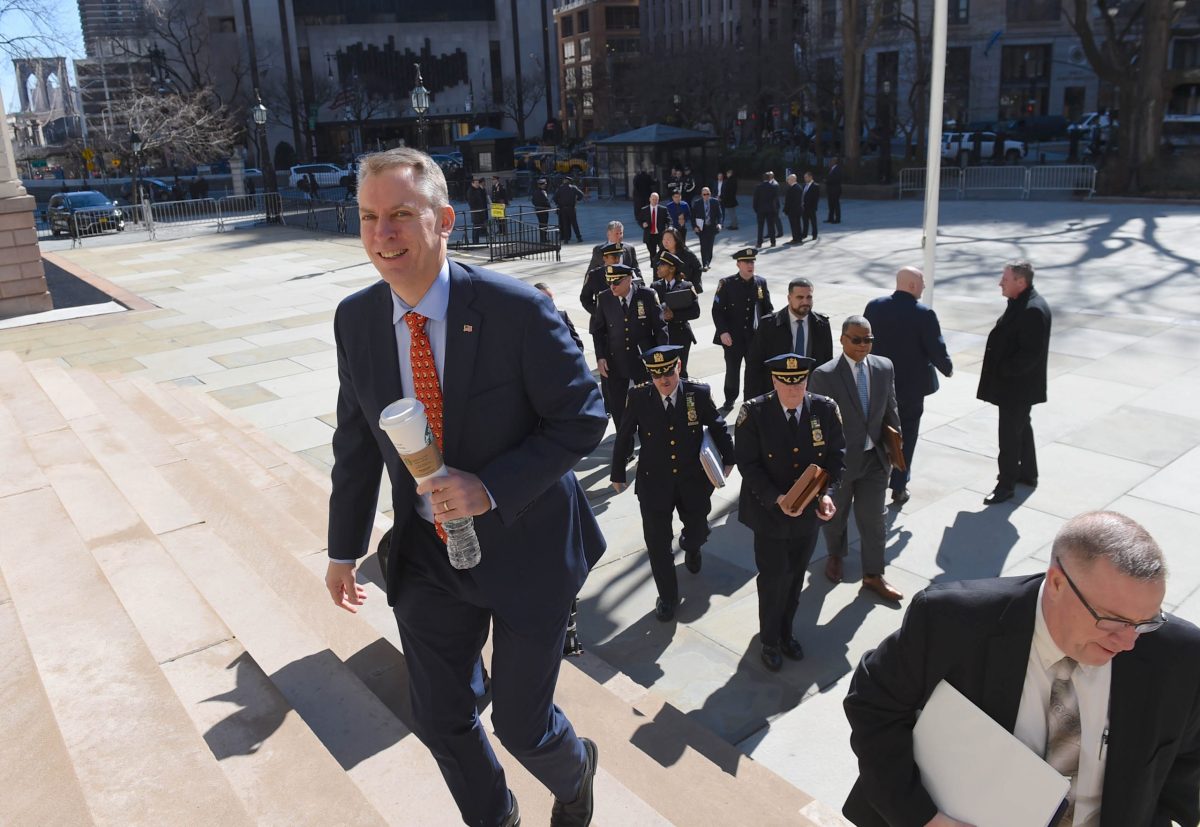Thousands of inmates from Rikers Island have been released since the beginning of the COVID-19 pandemic hit the city. But it doesn’t sit well with everyone.
Criminal justice reforms, passed in December, had cut the population at Rikers Island dramatically. Thousands more have been released since the coronavirus started spreading at the prison, with at least two related deaths reported.
Mayor Bill de Blasio’s administration, in cooperation with district attorneys in every borough, has been going through the list of inmates, shortening the sentences of some who have a year or less left on their term. Other inmates have been sprung provided that they wear monitoring devices at all times.
The Independent Commission on New York City Criminal Justice and Incarceration Reform released a brief report recommending even further reductions in jail populations to “limit the spread of the virus.” The de Blasio administration and other system players have already reduced the New York City jail population by more than 1,400, but there are several areas where advocates believe more can be done.
However, Police Commissioner Dermot Shea, in an interview with WNYW-TV’s Rosanna Scotto last week, said that some of those being released under what he said were “compassionate release” were committing crimes such as bank robbery or witness intimidation. In one case, Shea said one person released from Rikers set fire to the door of a victim.
The commissioner had been a critic of criminal justice reform leading to changes in those reforms in the April state budget that some reformers criticized as regressive.
“I was on the record and these are tough decisions and I support them in a calculated way,” said Shea adding that he said, “I think people are taking advantage of the situation.”
The NYPD is not alone in criticizing the Rikers release.
The Correction Officers Benevolent Association (COBA) has also criticized the program as regressive. COBA is against the current compassionate release program, despite some of their officers coming down with COVID-19 in Rikers Island jails, where it is nearly impossible to maintain social distancing.

Michael Skelly, a COBA spokesman, said the union opposes the current release program saying, “you don’t solve a public health crisis by starting a public safety issue.”
“Letting criminals out of jail, with underlying conditions, is not keeping corrections safe,” Skelly said, adding that there have already been more than 600 positive cases of COVID-19 among his officers despite the releases — five officers have died.
“They are in jail for a reason — bail reform wasn’t able to let them out and there were underlying reasons why they should be incarcerated,” Skelly said. “Why are corrections officers forced to go back to work after being tested positive? They are forced back to work and the department is trivializing symptoms — 100.5 fever.”
The union provided its members with 40,000 N95 masks and hand sanitizer. Skelly said the union had to sue the city to provide testing.
“Why should we be forced to do all those things to protect the health and safety of our members?” Skelly asked.
De Blasio has defended the release program saying that it saves lives.
“I do not believe that there were no answers to this — we have a clear monitoring program, a supervised release structure and we have taken a number of measures to make sure people are monitored, even some electronic monitoring,” de Blasio said. “We are making sure anyone with health danger is not in harm’s way.”
The mayor insisted that “safety” was their primary concern and “if someone needs to be brought back to jail, we will do this.”
Those being released are not being supervised by probation as they had been in the past, officials say, but by non-profit organizations who stay in constant contact with those being released to make sure they have housing, health care, and job training. Critics argue that releasing prisoners now actually exposes them to COVID-19 because they are often sent back to their families in crowded conditions and record unemployment leaves some of the former inmates with no job prospects.
Officials for the Brooklyn District Attorney’s office say there are three categories of those released – shortened sentence, technical violations of parole such as missing a drug test (not serious felons) and those held on pre-trial charges and not yet convicted of crimes.
“We always consult with the victim and most of them don’t want them to die of COVID-19 in jail – so we try to strike a balance,” an official said, adding that of the 4,200 still in jail, 3,000 are awaiting trial.
Many of the former detainees are assigned to non-profit criminal justice reform agencies, each getting their own
Adam Mansky, director of criminal justice for the Center for Court Innovation, works with more than 1,500 former detainees from Rikers. His organization provides work training, supervision and mental health services so that former offenders are not on their own. CCI is one of several non-profits working with offenders to make them productive city residents.
Mansky said they supervise 100 on pre-trial release.
“We have substantial expertise in the supervision component, providers, this being an alternative to bail and an alternative to incarceration,” Mansky said. “We are providing whatever kind of connections to social services they need, case managing, with issues they have, might it be issues with housing, substance abuse we are helping them with that.”
“As for critics who say the release program is endangering New Yorkers,” Mansky said, “I think the city is trying pretty hard to make sure those being released as a result of the crisis are closely supervised — it’s an ongoing obligation. … Not only do we provide supervision but re-entry providers are meant to work with them, get them job training – there is a commitment from the city to make it happen.”
But the self-quarantine of staff and former inmates makes their job even more difficult.
“That’s one of many problems. This is a very upside-down time and it’s disorienting, for staff or someone out of Rikers,” Mansky said. “The reality is there are many challenges — some of those released don’t have a change of clothes when they leave so we make sure they have that. There are so many other concerns so we try to provide connection in the best of times, but those problems are now multiplied.”








































